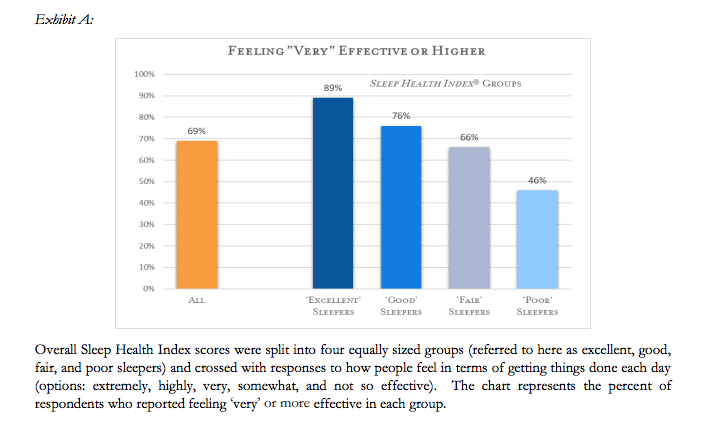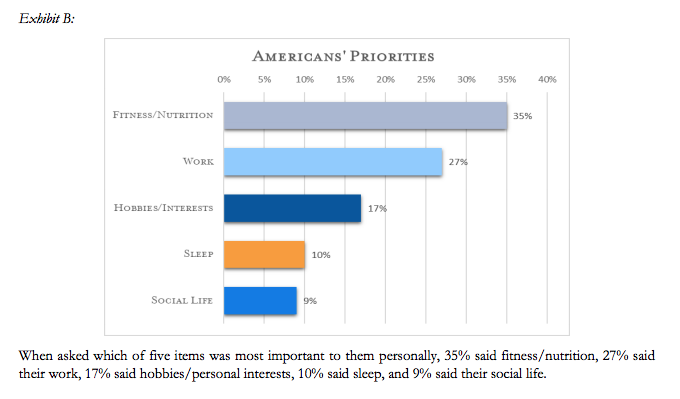To Sleep or Not To Sleep?
I just spent five weeks on the road, visiting five different cities across America, EU and Asia, spending majority of my time in NYC and Istanbul, two cities that literally do NOT sleep.
We tend to think of sleep as a time when the mind and body shut down. 1 out of 3 colleagues I speak to argue having a lesser need for being ‘inactive’; and yet, struggle to find the WHYs behind certain patterns (i.e. not being able to lose weight, not remembering things, breathe shortage, etc.).
It is time we acknowledge sleep is actually an active period in which a lot of important processing, restoration, and strengthening occurs; and what we need for our holistic well being.
First, why do we even sleep?
During his TED Global Talk of The Neuroscience of Sleep, neuroscientist, Russell Foster provides three great reasons:
- Sleep is for restoration, to replenish and repair our metabolic processes. Indeed, a whole host of genes are “turned on” only during sleep — genes associated with restoration and metabolic pathways. My grandmother, who is a dervish has a great saying: “Everything with a soul (that’s all living and non-living) requires time to be in need and in rest.”
- Sleep is for energy conservation, to save calories.
- Sleep is for brain processing and memory consolidation. Studies show that if you prevent people from sleeping after a learning task, their ability to learn is basically smashed. And worse, our abilities to come up with novel solutions after a complex task are reduced after sleep deprivation.
I would add a fourth reason to say sleep is for discovering self. Again, studies would tell us our consciousness is not just a bunch of different levels – it’s a group of different states, of which the best worked out are those involving wakefulness and the different stages of sleep. Moving through the states of consciousness allows us to discover/ rediscover self and to experience different levels of ‘awareness’ in search of reaching potential and productivity.
Then, what happens when sleep is disturbed?
Sleep is one of the most pervasive biological phenomena, but one whose function remains elusive. Because we often seem to function ‘just fine’ without sleep, it is hard to point to the specific effects of sleep deprivation, yet there are… We experience both biological and psychological side effects when we are under sleep pressure or worse sleep deprived.
On the biological side, there are effects on our central nervous system, immune system, respiratory system, digestive, cardiovascular and endocrine system. Take digestive system, for example, sleep affects the levels of two hormones, leptin and ghrelin, which control feelings of hunger and fullness. Leptin tells our brains that we’ve had enough to eat. Without enough sleep, our brain reduces leptin and raises ghrelin, which is an appetite stimulant. The result: Nighttime snacking or overeating.
On the psychological side, studies suggest sleep deprived individuals are more prone to experience loss of will power, engage in poor decision making, and loss of control. Regarding the loss of will power, for example, a review published in Frontiers in Human Neuroscience journal back in 2015 summed up the results from a range of studies. It reported that sleep deprived individuals are more likely to give in to impulses, have less focus, and make other questionable or risky choices. In fact, looking across studies, it may be fair to say lack of sleep may affect self-control in two main ways: 1) it might reduce our capacity to exercise willpower; 2) it could diminish the internal energy we need for self-control.
The amount of sleep needed by an individual certainly varies. Our genetic make up, age and habitual experiences play a role, along with a number of other factors; but a good guideline — as recommended by the National Sleep Foundation — is generally seven to nine hours each night.
And, for the latest stats…
The Foundation’s annual ‘Sleep in America®’ poll reported for 2018 that among U.S. adults with excellent sleep health, nearly 90% say they feel very effective at getting things done each day, compared to only 46% of those with poor sleep health, see below:

The study also showed that only 10% of American adults prioritize their sleep over other aspects of daily living such as fitness/nutrition, work, social life, and hobbies/personal interests, see below:

So, what we do?
The dangers of sleep disruption can not be stressed enough. If you are one of us struggling with setting balanced sleep patterns, you could try one of the following and if not, consult with a medical doctor:
- Decrease the amount of light exposure at least two hours before going to bed. We start turning off lights in our house after 7pm and try to create a nesting atmosphere by setting candles, incense or fire.
- Leverage the bedroom for sleep only. Making it a heaven for comfort and rest really makes the bed more inviting. All the neuroscientists I work with recommend NOT having tv or gaming available in the bedroom. Just saying…
- Turn off blue ray that will excite the brain. We do not own a TV and we deny all technology usage after 8pm in our house.
- Don’t drink caffeine after lunch. Ok, I have Turkish genes, so caffeine doesn’t affect me as much as other people, but, my husband stopped drinking caffeine after 2pm and it really has benefited him greatly.
- Increase light exposure when you wake up. Another disagreement we have in our house: I am for keeping the room cool and easy on light, where as my husband likes it warm and very dark. When we have a disagreement, we turn to science 🙂 and it tells us: a cool room with a little light to wake up to helps our body slowly rise in the morning.
For me, personally, I made a leap in sleep once I discovered the stigma I kept in my head. I was raised to believe I needed to work in order to be most productive, which was untrue… What I have learned along the way is that if we want to fully enjoy these sacred lives gifted to us and be at our best when in encounter with others, we need to stop fighting our natural system processing and look for alternatives methods to reach unknown corners of our beings…
Life is SO much better when we sleep. Try it.
Trust as a Foundation of 21st Century Organizations

One of the most frequent questions I get regarding ourRead more…




Comments are closed.